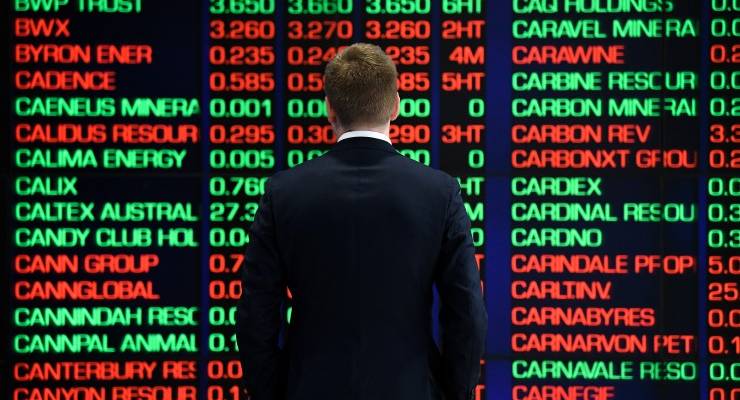
In late 1999 your writer was working and skiing in Canada for a few months between university years. My job involved cleaning dishes and serving food at a tiny café near the foot of Whistler mountain, for which I received C$5.90 an hour (plus tips).
One day, after an eight hour shift (earnings, approximately CA$60), I went to the public library (the only one which had free internet) and checked my Commsec account. One of the shares I owned, NewTel, had doubled. I’d made $5,000. How good is the share market?
The answer: not that good.
A few months later, NewTel’s share price, despite the backing of billionaire Richard Pratt, would collapse. Within a few years the business had been liquidated and former director Domenic Martino was forced to resign as head of major accounting firm Deloitte.
NewTel of course was far from the only catastrophe of that era. Companies like Voicenet, Davnet, dStore and many others realised raising money from gullible investors was far easier than actually running a profitable business.
Every bubble has a kernel of truth underlying it. Back in 1999, it was the hope of the internet creating a boom in e-commerce and telecommunications. That was twenty years ago now, long enough for memories to fade, or in many cases for a new generation, yet to experience the madness of a real bubble, to join in the fun.
In 1999, online brokers like e*Trade and Commsec drove the retail investor boom. Now, gamified apps like Robin Hood go further and allow speculators (many of whom are young, bored males) to gamble on shares using leverage. The practice can even lay claim to playing a role in the tragic death of a 20-year-old American named Alexander Kearns. Kearns mistakenly thought he had lost $730,000 (partly due to how Robin Hood showed his balance). A note left by Kearns asked, “how was a 20-year-old with no income able to get assigned almost a million dollars’ worth of leverage?”
Last week, Robin Hood announced it had raised another US$200 million at a valuation of US$11 billion.
With gambling difficult in the pandemic, many have turned to another form of gambling — buying shares, often using leverage. Like 1999, it’s not all shares that have benefited from the bubble — it has been concentrated in sectors like technology. Tesla has a market value of more than US$400 billion.
In June, Tesla overtook Toyota to become the world’s most valuable car company — back then Tesla was worth a measly US$200 billion. Volkswagen, which last year was making around EU$4.5 billion a quarter, is worth EU$73 billion. Tesla made around US$100 million last quarter (after getting more than US$400 million in credits).
It’s not just adrenaline-charged, bored young men who are partying like its 1999. Back then, we also saw the growth of “mum investing clubs”, which would meet and trade stock tips in high-flying companies.
Yesterday, the front page of the AFR heralded “the new face of stockpicking”, featuring 29-year-old Gold Coast mum Caitlin Edie who managed to turn $1000 into $6000 through investing in Afterpay and Webjet. (To her credit, Edie acknowledged that “these profits were purely a fluke. I won’t even pretend they were calculated.”)
The darling of the current boom, Afterpay typifies the madness. Afterpay, whose business essentially turns debit cards into credit cards (just without the regulation), is now worth $25 billion (it expects to make EBITDA of $40 million this year). ANZ, founded in 1835 and which generated around $9 billion in operating income last year, is worth $52 billion.
I’m not sure when this madness will all end, but it won’t end well.
Adam Schwab is a company director, angel investor and author of Pigs at the Trough: Lessons from Australia’s Decade of Corporate Greed.








Buyer beware, many first time retail investors should use ETFs vs. gambling on a handful of (often high profile tech) stocks.
Investing should be a long game, understanding swings and roundabouts, based upon research and diverse assets e.g. no more than 5-10% in any given stock or asset, moderate price to earnings ratios, regular dividend payments etc., and patience for compounding of reinvested dividends.
It has lost track with basic economic principles, but that wasn’t a recent event. The uptick to 7200 in February 2020 was at the same time as Covid was about to wreak havoc. Not possibly, definitely, anyone could see it.
I got out in August last year, counted myself lucky to get out at 6400, a week too late for the high of the time of 6900, but Brexit and US/China problems still loomed large.
Even the carnage of late February wasn’t about Covid, as it should have been, but due to an oil price slump to some selling oil at negative figures.
It is no longer an investment option, it is gambling, and gambling is what I do with my small change, not my retirement funds. It is largely propped up by a series of sophisticated Ponzi-type schemes, this article identifying just one. The official Ponzi-scheme is the money pouring in from super funds on set and forget default options, plus soon-to-be retirees receiving very poor advice to have some exposure. Just a little bit of fire will do you good. And that was from an ethical industry superannuation fund.
Its crazy, I’m getting stock tips from the shoeshine boy, and have been for a while. Can’t get back in until it gets back to planet earth, don’t need to and don’t want to.